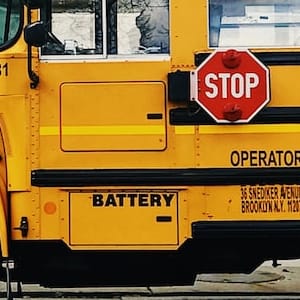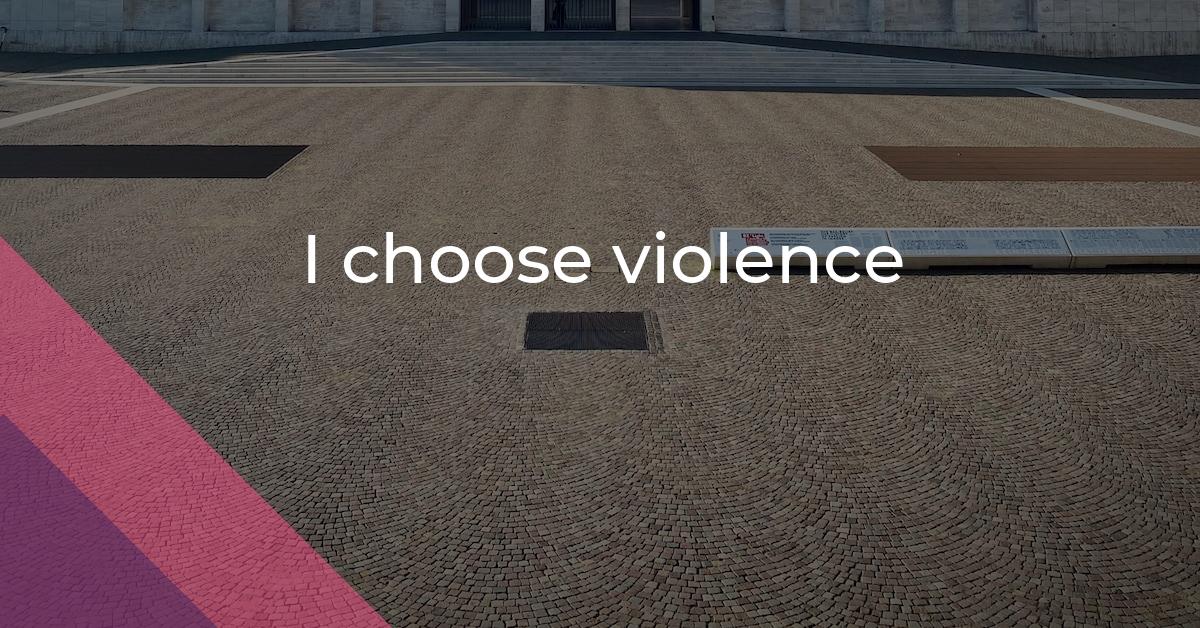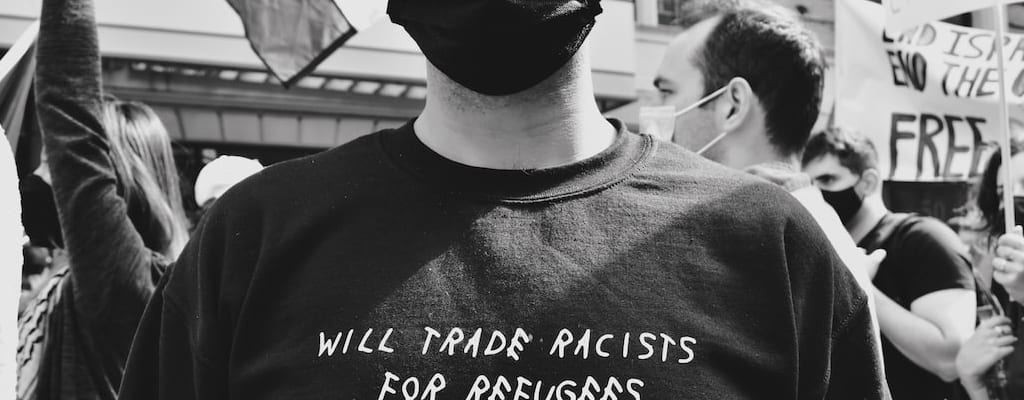I choose violence: Idiom Meaning and Origin
What does ‘I choose violence’ mean?
The idiom "I choose violence" is a figurative expression that conveys a willingness to engage in aggressive or confrontational behavior, often in response to a challenging or frustrating situation. It signifies a decision to forgo peaceful or diplomatic solutions and opt for a more forceful approach.

Idiom Explorer
The idiom "with a vengeance" means doing something with great intensity, force or enthusiasm.
The idiom *in your face* means to confront someone with something aggressively or boldly, often to provoke a reaction. It implies direct and unapologetic behavior, disregarding social boundaries.
The idiom "have words" means to argue or have a heated discussion with someone.
The idiom "guns blazing" means to engage in a task or activity with great determination, energy, and enthusiasm.
The idiom "go for the throat" means to attack or confront someone in a ruthless or determined manner, aiming to cause serious harm or defeat them completely.
The idiom "go for it" means to take action without hesitation or fear, pursuing something with determination and enthusiasm.
The idiom "get it on" means to engage in sexual activity or to start a fight or argument. It is an informal expression often used to imply initiating something intense or confrontational.
The idiom *fuck you* is an offensive, vulgar expression typically used to convey extreme anger, resentment, or contempt towards someone. It is highly inappropriate in most formal or polite settings.
An idiom used to express frustration, shock, or annoyance, often in an exasperated or pleading tone.
The idiom "force someone's hand" means to put pressure on someone to make a decision or take action, often by creating a situation where they have no other choice.
Decoding the Ferocious Choice
The idiom "I choose violence" gained popularity in the digital age and is often used to express a preference for aggression or conflict. Its origin is primarily associated with the television show "Game of Thrones," specifically a dialogue exchange in the sixth season finale. In this scene, Cersei Lannister refuses to back down and instead engages in conflict, uttering the memorable phrase "I choose violence."
Since then, "I choose violence" has become widely adopted and referenced in various contexts, particularly on social media and online discussions. It has infiltrated popular culture, with users incorporating it into memes, hashtags, and everyday conversations. The idiom is often used humorously or ironically to express a determination to confront challenges or enemies, regardless of the consequences.
The concept behind "I choose violence" taps into a primal instinct present in human nature. It reflects a part of the human psyche that values dominance and toughness when facing adversity. The phrase resonates with individuals who feel empowered by embracing conflict or confrontation as a means to assert themselves.
This idiom has evolved beyond its original context and can be used metaphorically. People may use it in scenarios where actual physical violence is not involved, but rather as a way to express their willingness to engage in verbal or emotional battles. It can be a daring statement or a manifestation of one's refusal to be passive or submissive.
One related idiom is "choose violence." This phrase reinforces the idea of actively selecting aggression or conflict as a response. It emphasizes the deliberate choice to engage in confrontations, highlighting a preference for assertiveness rather than passivity. "Choose violence" aligns with the underlying concept of "I choose violence," both illustrating a willingness to address challenges head-on.
Another related idiom is "choose one's fighter." This idiom captures the idea of selecting a representative or advocate to engage in conflict on one's behalf. It implies the strategic selection of someone skilled or capable of handling the situation effectively. In the context of "I choose violence," the phrase could be interpreted as an individual aligning themselves with a strong ally or champion to address challenges or enemies.
"come to blows" is another idiom related to "I choose violence." This phrase signifies the escalation of a conflict to physical violence. It suggests a situation reaching a breaking point where two or more parties resort to physical confrontation in their pursuit of a resolution. "Come to blows" reinforces the idea that "I choose violence" may not always be metaphorical, but can manifest in actual physical altercations.
"with a vengeance" is a phrase that amplifies the intensity and determination behind "I choose violence." It implies a strong desire or intention to seek revenge or exact punishment. In the context of "I choose violence," "with a vengeance" emphasizes the ferocity and single-mindedness with which an individual pursues their aggressive or confrontational approach.
Lastly, "come out swinging" is an idiom that further emphasizes the proactive and assertive nature of "I choose violence." It suggests initiating a conflict or confrontation with force and determination. "Come out swinging" conveys the idea that one is ready and willing to engage in a battle, emphasizing the choice to adopt an aggressive stance from the start.
Despite its relatively recent emergence, "I choose violence" has already become an established idiom in contemporary discourse. Its widespread usage on social media platforms and references in popular culture ensure its continued relevance and recognition. Like all idioms, the meaning and impact of "I choose violence" may continue to evolve, making it an intriguing phrase to explore in the ever-changing landscape of language and communication.
Example usage
Here are three examples of how the idiom "I choose violence" can be used in a sentence:
- "When provoked, he becomes furious and declares, 'I choose violence!'"
- "In a heated argument, she clenches her fists and warns, 'Don't push me too far. I choose violence!'"
- "After witnessing an injustice, he boldly declares, 'Enough is enough! I choose violence as my means of protest!'"
More "Behavior" idioms



